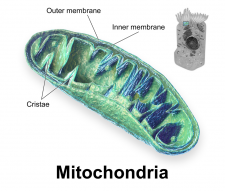Aggregated News

This is an important paper because it may well be the last published set of experiments from the Newcastle group (which has been developing mitochondrial replacement therapy) before the HFEA makes a decision on whether or not they are given a licence to implement pronuclear transfer (PNT) clinically. The overall message they convey is one of safety. Problems with carryover are noted and success in terms of improved efficiencies in the development of the techniques are brought to the fore (they now employ an ‘early’ version called ePNT).
From my point of view the most interesting aspect of this study is the question of mitonuclear mismatching, which is something I’ve addressed with colleagues in the past. To recap, we proposed that there is a clear possibility that when moving the nuclear genome from one ova to another, the switch from one cytoplasmic/mitochondrial background to another could be detrimental to the health of the developing embryo (this concern applies to any of the variants currently proposed or developed for mitochondrial replacement therapy). We have outlined the evidence from a range of...



